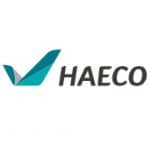A Hurdle to Advancing Electronic Manuals
IFA Comment: The Aeronautical Repair Station Association (ARSA) are long standing IFA members, this is interesting with Sarah raising a good issue.
Sarah MacLeod, July 27 2020 Aviation Week Network
Before paper was created, man chiseled stone; no one asked where the stone was mined, or the chisel made. When paper became ubiquitous for creating laws and other records, no one asked how the paper or ink was made or which pen was used. When the typewriter and then word processor were invented, no one asked which brand or model was used, as with the paper upon which the record was printed or copied.
Electronic methods for creating, signing and storing records are no different; they are no more vulnerable to falsification, loss or destruction than stone or paper. This modern methodology, however, has been under intense scrutiny for more than two decades by civil aviation authorities. In the U.S., a repair station needs a special approval added to its certificate to use electronic manuals. The “requirement” cannot be found in regulations or law, but if the manual is provided to personnel through a computer, it is considered “electronic” and “requires” the agency to issue its “permission.”
The requirement to have today’s stone tablets “approved” needs to be vigorously challenged if the industry is ever going to adopt blockchain tools or any other paper replacement technological efficiencies. For U.S. repair stations, a rule change two decades ago clearly enunciated the expectation that the “media” by which manuals and other required documents would be created, stored and made available was up to the certificate holder. The agency’s preamble said the government’s focus would be on the fact that the documents were available and current, rather than the method by which that requirement was met—the certificate holder would be allowed to use hammer and chisel or a document management system controlled by IT administration.
As is often the case, the plain language of a regulation and its meaning and intent from preambles is lost in the development of guidance material that does not change with or follow the rule. Certificate holders are reluctant to challenge the local interpretation since few are reading the regulations themselves or truly understand the extent and nature of the government’s legal authority. The local inspector can certainly make life difficult, but failure to follow the regulations can be worse. In the end, when failure to take advantage of the plain language of a rule is stymied by ignorance or reluctance to “buck” the system, the entire industry’s efforts to become efficient suffer.
But hey, a caveman can use stone and chisel….
Sarah MacLeod is managing member of Obadal, Filler, MacLeod & Klein, P.L.C. and a founder and executive director of the Aeronautical Repair Station Association.
Link to Aviation Week article




